I cannot talk, I couldn’t breathe ... inside leading literary figure Laura Kroetsch’s cruel cancer battle
What started as a cough soon turned into something much more frightening for the nationally renowned literary figure.
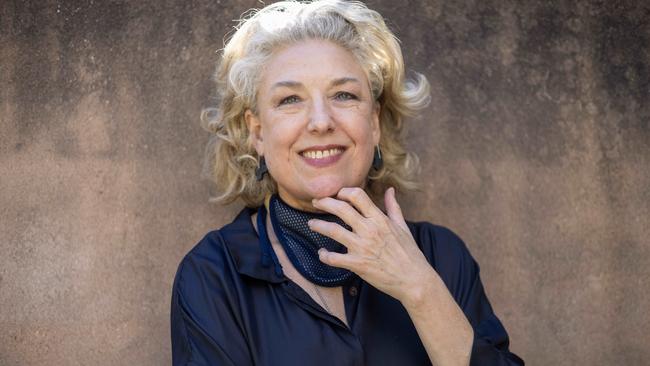
SA Weekend
Don't miss out on the headlines from SA Weekend. Followed categories will be added to My News.
Laura Kroetsch was too sick to get to last year’s Writers’ Week. The event that she curated and ran for seven years was the highlight of her year and she loved being around the literary stars, the sharing of ideas and the audience engagement.
But in March 2023, she was struggling to breathe.
A cough in January had worsened and in February a scan showed a lump in her thyroid as well as her larynx. By the time Writers’ Week came around, her throat had almost sealed over and she was gasping for air.
“I knew I was sick; I couldn’t breathe, I could feel something awful was happening,” Kroetsch types into her phone then holds it up for me to read; this is now how she holds a conversation.
“I just wanted to breathe.
“I didn’t know what it was, I thought it was a breathing issue.”
It was cancer and in late March, four days before surgery to remove her thyroid and her larynx, there was more devastating news. She would also lose her voice box. “I thought it was the thyroid and larynx only, not the voice box. Four days before, I found out it was the voice too,” she types.
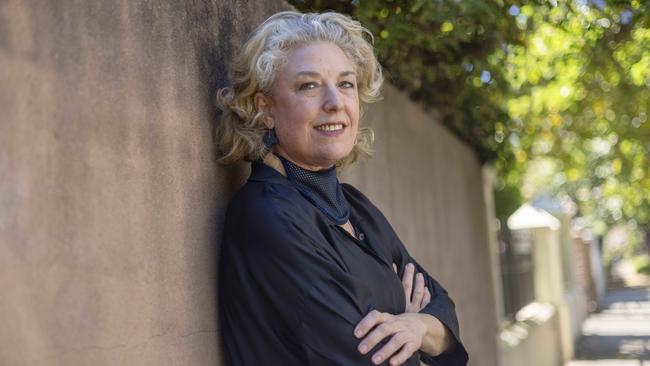
Desperate to breathe, she agreed to major, life-changing surgery to cut out the aggressive and very rare sarcoma. It was a type of cancer that invades soft tissue and muscle, and it is usually a disease of older men, not a vibrant woman in her late 50s.
After an initial, more conservative surgery, she was still struggling for air and underwent more tests.
“It was still growing, so I went back for more surgery,” she types. “When I woke up, it was all gone.”
You cannot imagine it, she writes.
“It was so scary and I wanted was to breathe,”
Kroetsch could not at first understand what had happened. Sizeable stitches ran from below each ear and down her neck, and at the front of her neck was a stoma – an open portal into the body.
“My head was swollen and my neck seemed square,” she types.
“The right side of my mouth dropped, I had a tube running into my nose for food, and drains in my neck. And I couldn’t talk.”
To communicate with her doctors and nurses, she had to write on a board with a marker. “I was not myself,” Kroetsch types.
She was struggling to stay alive and at the time it was inconceivable that a year later she would apply for, and get, a job as chief executive of Writers SA, the body that creates opportunities for writers and fosters a literary culture in the state. It is a dream job and a chance to make a contribution and return to the life of books and writers.
Kroetsch is American and grew up in New York, and her sister, who by chance works for a cancer organisation in the US, visited from Florida to care for Kroetsch during her first surgeries. She did not let on at the time how close to death Kroetsch came and how grim was her prognosis.
“She knew; I didn’t understand,” Kroetsch writes.
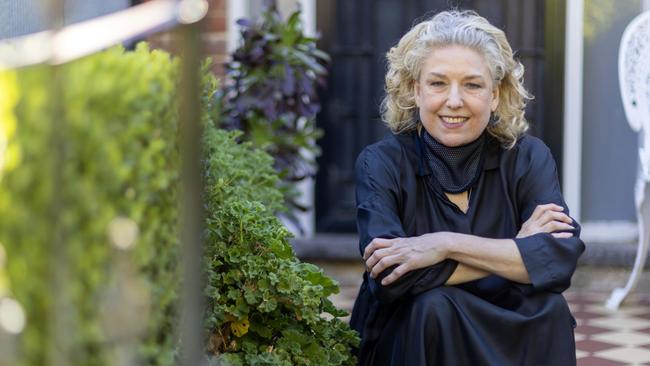
Her doctor was down to earth and practical, kind, but he also did not lie. Yes, what had happened to her was terrible but the cancer was aggressive and she was also lucky to be alive. And despite what she calls her disfigurement, Kroetsch never considered not going ahead. The feeling of slowly suffocating kept her in a state of constant panic.
“Your whole body fights; you sweat and your muscles strain just trying to breathe,” she types. “It was so scary and all I wanted was to breathe.”
Her medical team removed the cancer and then rebuilt her so she could function. Her breathing was re-routed through the opening in her throat and she can no longer nose breathe – or snore. She inhales straight into her lungs through the open hole which is covered by a medical mask that looks like a bandana.
“They rebuilt me so that I could breathe through a hole in my neck and eat through my mouth,” she types. “I cannot smell. I cannot blow out a candle, and I cannot talk.”
When she wants to sneeze, she feels a tickle in her nose but the sneeze comes straight from her throat. The same when she coughs. She has to regularly lift the mask and spray the stoma with saline to keep it moist.
All of this can be managed but Kroetsch’s voice box was her tool of trade. It was how she communicated with the world about her love of books, and speaking to an audience was part of who she was.
The blonde American had moderated author events at Writers’ Week, looked after visiting celebrity and less famous authors, and made sure they made the most of their time in Adelaide.
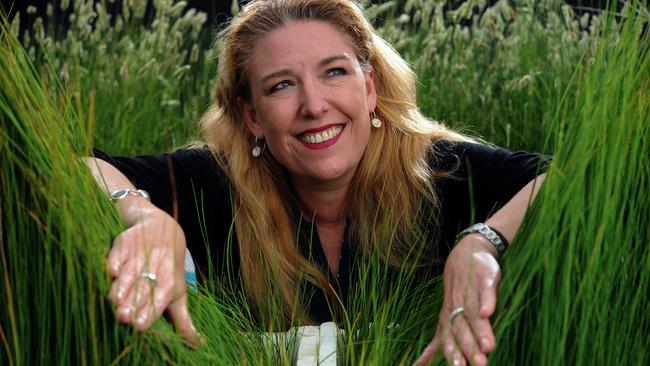
She gave interviews to the media about which writers were coming, why she had asked them and how they were not to be missed. And she presented her program and ideas to her employers, the Festival of Arts Board.
She could do none of that without a voice.
It was hoped that Kroetsch would be able to speak with a prosthetic but it never worked because of the unique make-up of her throat that prevented vibrations from registering.
“They said I would be talking before I left hospital,” she types. “I had a prosthesis but it didn’t work – my throat collapses – so we’re not sure what to do next. Apparently I am unique!”
There were dark times and a period of questioning why this had happened to her. For a while, she was angry with everyone – her surgeons, the world. She could cope with the thyroid and the larynx but not being able to speak devastated her.
“The others I wasn’t angry about, just losing my voice. It affected my sense of self,” she writes. “Who am I without a voice?” It did not help that it was an old man’s disease and someone like her should never have it.
The New Yorker, who is unmarried, moved to Adelaide after running The Auckland Writers Festival because she wanted to run a free literary event. Once in Adelaide, she loved it and became part of a community of authors, publishers and readers.
Her Writers’ Week events were memorable for their strong literary stand and engagement with issues like climate change, race, and geopolitical tensions, including with China.
At her last festival in 2018, she promoted discussion on the Middle East that were forerunners to the controversial debates that have since become so divisive.
“Always when we talk about the Middle East there’s a little contention there, and I suspect that (author and ABC journalist) John Lyons, who wrote Balcony Over Jerusalem, isn’t hugely sympathetic to the occupation – he’s sympathetic to the Palestinians, and that always upsets people,” she told The Adelaide Review before her final event.
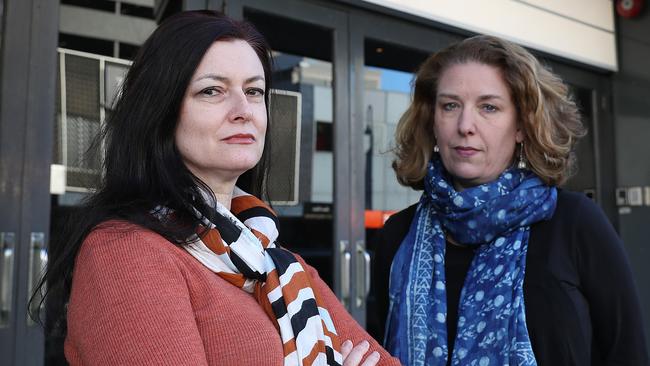
After that, she curated Dark Mofo, the wild, midwinter festival of art and ideas at Hobart’s Museum of Old and New Art; was events manager for the History Trust in 2022; and worked for OzAsia and the Adelaide Festival of Arts. She never thought about leaving.
Once she fell ill, friends and family rallied and her sister’s wisdom and experience was a godsend. “She was great, super-pragmatic, and she never let on that it was bad,” Kroetsch types. “She knew, I didn’t understand. I only now understand that it was stage 4 and that stage 4 could have killed me.”
Her friends closed ranks around her, raised money on a GoFundMe site and shepherded her through appointments. They would accompany her to the doctor and take in the medical details while Kroetsch managed her emotions.
From late March until late June last year
she was either actively recovering from surgery or in treatment, and for much of that time she stayed with friends, adrift in time but always with a book.
“In order to breathe, I needed to lie in bed on my back, propped up on multiple pillows,” she writes. “I learned to sleep at an upright angle and you would often find me with a book or a Kindle lying across my chest.”
“My life was lived one day at a time”
Books and literature were her friend and saviour. Kroetsch, who reviews books for The Advertiser’s SA Weekend, sought out topics that did not relate to her condition. She read deeply about the history of textiles and stories from the outside world that had nothing to do with self-help or inspirational journeys of recovery.
She developed a taste for crime novels, both old and contemporary, and returned for the first time in years to Agatha Christie’s Death on the Nile and Murder on the Orient Express, then moved to more bookish murders like Peter Swanson’s Eight Perfect Murders.
“After I was first disfigured – that is how I felt – I read books that made no reference to cancer, pity or recovery,” she writes. “At the time, each book did what was required of it, and each made me better in my mind and my body.”
She thinks now she was in a state of shock, robbed of speech, with her days devoted to managing medications, being on a nebuliser and learning how to care for the stoma that is part of her life.
“If there was one thing I could not do, it was to play a long game,” she writes. “My life was lived one day at a time.”
She would do what she calls “sleep read”, entering a cycle of reading and sleeping that went on outside of a normal routine. She read not just for escapism but sought out gentle, kind books that stimulated her and fed her mind and soul. “I was often sad,” she writes. “I just tried to move forward.”
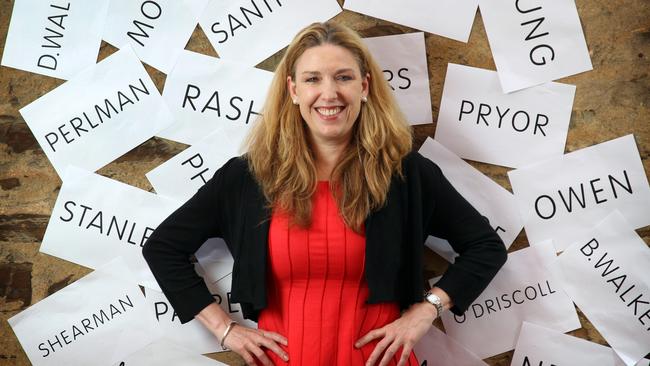
The trauma of surgery was followed by rounds of chemotherapy and radiotherapy which occupied much of the first half of last year. Kroetsch says she was an obedient patient but not long into her illness she developed anxiety about medical procedures and it worsened once treatment began. Radiotherapy was harrowing. She would lie strapped to a table in a mask that confined her head and shoulders and prevented her from moving, even to cough.
“My anxiety was such that I would pop a pill before every session, and often at night, just to get to sleep,” she writes. “I was often up, reading my way away from reality and back to the Nile, or a rainy night in the library with a killer on the loose.”
She was drawn to beauty and the natural world because they reminded her there were things bigger than her illness. Sometimes she would step up and try something more demanding, like Ta Twan Eng’s The House of Doors and the poets of her youth, Marie Howe, Mark Strand and Mary Jo Bang.
For the most part, she read books that demanded her attention but did not encourage self-reflection. Reading soothed and entertained her and kept her company during the long nights and fretful days.
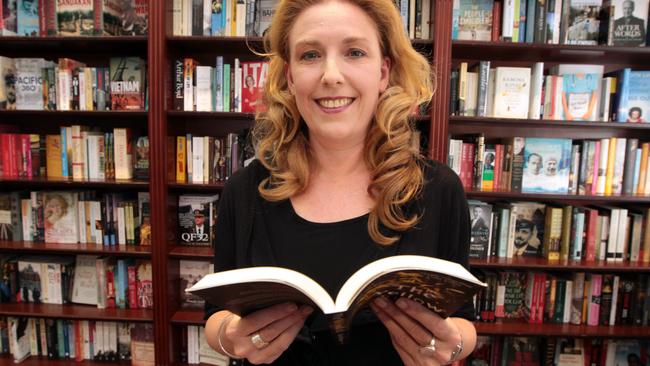
She lost weight and was fed through a tube via another hole into her stomach. She lived on pharmacy energy drinks while keeping at bay a constant anxiety that something would happen to stop her from breathing. She underwent 30 rounds of radiotherapy and at the end of June, completed both postoperative treatments.
Only later she learned that her doctors did not think she would be strong enough to complete the full course of radiotherapy.
“They tell you about the side-effects but until you get there, it’s hard to imagine living through it,” she writes.
At some point, a kind of healing began. When she was sick, she could not imagine coming back to life, let alone begin a new job. But in the second half of last year, she slowly regained function. She sleeps now without having to sit up. She can eat, and regained normal weight. She can taste a little and has developed a liking for bitter foods but still cannot smell.
She is not yet back to her Pilates class but has had one-on-one training while she regains lost strength.
Her re-emergence as Laura Kroetsch dates to the start of this year, when she happened to see an advertisement for the Writers SA job and knew it was something she could do well. She applied, and at no point was her lost speech mentioned.
“They worked to make it work and I did most of it in writing,” she writes. “I used a PowerPoint and text-to-voice for my interview and no one mentioned my voice. It is easy to say you do disability but many don’t do it.”
She began work in February and loves it. She conducts most of it through writing and emails, and she is working on a new national literary journal in collaboration with the three universities. Her only frustration is that she loved talking at length with writers and finds it hard to express herself fully when everything must be written down.
There is hope that she will speak again and this is her focus. She is having Botox injections in her throat to stop spasms and improve her swallowing, and eventually a prosthesis may work. She also holds out hope that AI will step in, with new technology being developed in Brisbane that reads throat vibrations and turns them into speech.
Kroetsch was 58 when it started and will turn 60 in September. Her mother died of ovarian cancer at 70, so she knew her genes were
against her.
“I was looking in the wrong place!” she types.
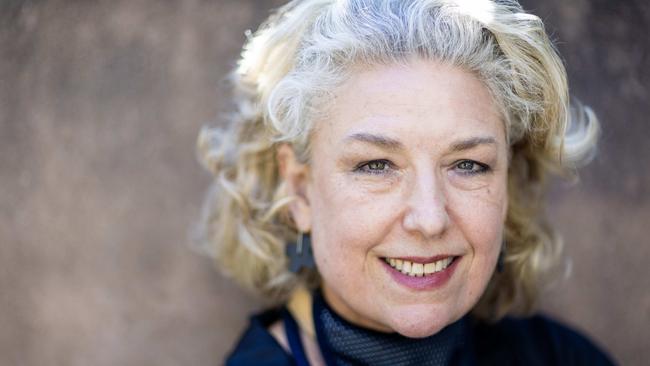
Life has slowed and conversational exchanges take longer, but her inner monologue is not dulled. She speaks as much as ever in her head but in life she is quieter, she laughs. And she still speaks in her dreams.
She also admits to a new fascination with people’s necks and gazes in admiration at the perfection of an intact neck and how its oblivious owner takes it for granted.
The worst of the trauma is behind her – she has one more surgery, her fifth, coming up this year – and she is happy to be here. As of February, she was declared cancer-free, a miracle in itself. Each day she confronts the pain of caring for her stoma, which wants to heal over but has to be forcibly kept open, and it is a distressing experience. She will be in medical care for the rest of her life, which upsets her, but with her post-chemo, shorter and curlier hair, she looks and still is Laura.
The illness forced her to think long and deep about her own death and it was a new and very strange feeling.
“I don’t dwell on a time span and you don’t think about it coming back,” she writes. “I try to appreciate life, not to do anything special. I try not to worry and to be in the world.”




